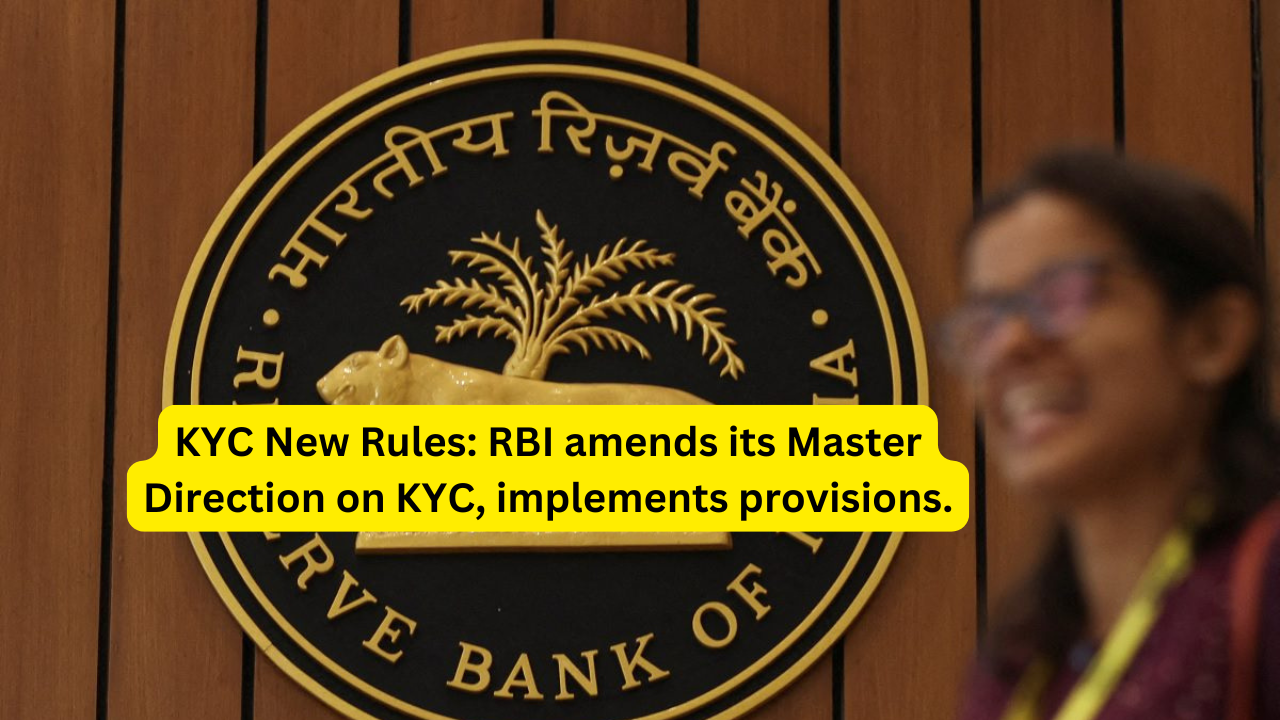KYC New Rules: If an existing KYC compliant customer wishes to open another account with any RE or wishes to avail another product or service, he/she will not have to go through the CDD verification process again for customer identity.

KYC New Rules : Changes in KYC Rules
The Reserve Bank of India (RBI) on Wednesday amended its Know Your Customer (KYC) norms to align them with the recent Prevention of Money Laundering (Maintenance of Records) rules. As per the amendments made in the master direction, regulated entities (REs) will have to implement the customer due diligence (CDD) process at the Unique Customer Identification Code (UCIC) level under the KYC Direction, 2016.
KYC New Rules : “RBI Eases KYC Process for Existing Customers: No Need for CDD Verification for New Accounts or Services”
Under this, if an existing KYC compliant customer wants to open another account with any RE (Registered Entity) or wants to avail any other product or service, then the customer will not have to go through the CDD verification process again for identification. In this regard, it has been said in the circular of Reserve Bank of India (RBI) that the new provisions made in the master direction have come into effect immediately.
RBI said, “Whenever an RE receives additional or updated information from its customer, the RE shall, within 7 days or such period as may be notified by the central government, provide the updated information to CKYCR so that the existing KYC records of the customer are updated with CKYCR.” CKYCR is an entity that receives, stores, secures and retrieves KYC records of the customer in digital form.
KYC New Rules: What is KYC
The full form of KYC is Know Your Customer. This is a process in which banks, insurance companies and other financial institutions verify the identity and address of their customers. KYC lets institutions know whether their customers are the ones they claim.
KYC New Rules: Why is KYC important
The KYC process helps prevent illegal activities such as money laundering or fraud. In this, apart from the identity and address of the customer, their name, contact and employment details are also revealed. The KYC process is usually done in-person, but it can also be done online through digital banking.
KYC New Rules: Documents Required for KYC
The documents required for KYC include Aadhaar card, PAN card, passport, driving license, voter ID card, job card, or any government issued letter.

